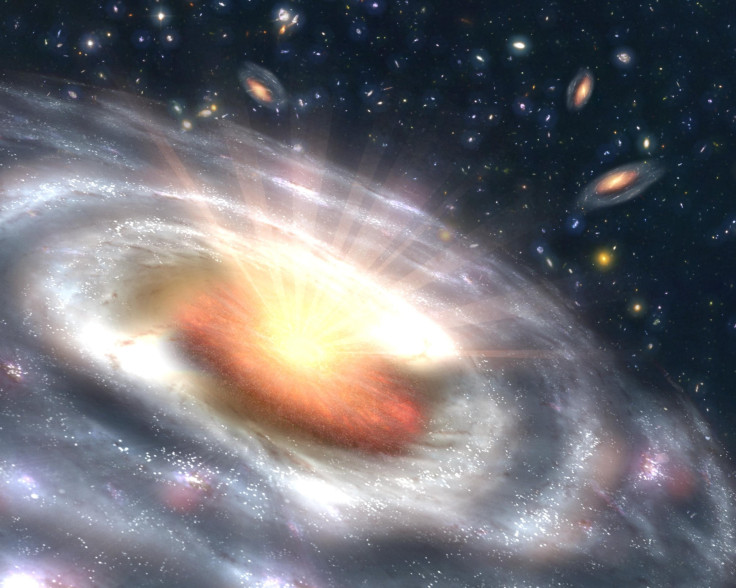Black Holes May Have Brought First Light To The Universe

New research out of the University of Iowa hypothesizes that the universe actually got all of its light thanks to violent black holes. The research is based on observations made of a galaxy currently nearby to Earth where ultraviolet light is escaping the bounds of the galaxy, according to a University of Iowa press release.
When the Big Bang happened there was no light, meaning the entire universe was dark. The universe was just a “hot soup” of particles back then, according to NASA. Then once the universe began to combine some of those particles they formed atoms of elements we have today. When those atoms became neutral they were then able to transmit light freely. Before the atoms became neutral the light simply scattered.
As the universe expanded it became more transparent and full of these atom that allowed light to travel as well as full of objects that give off that visible light like whole galaxies, planets and stars. But where exactly the first light came from or when it appeared is still a mystery.
The galaxy researchers examined is called Tol 1247-232 and it sits about 600 million light years away from Earth. Using NASA’s Chandra Earth-orbiting telescope researchers were able to see that the Tol 1247-232 galaxy was emitting a small amount of ultraviolet light that varied in brightness.
The light didn’t quite match that of a star so the team working on the study came up with another theory. That a black hole at the center of the galaxy was flinging out matter that was escaping the surroundings enough that the light could be picked up by Chandra. The researchers think that the escaping matter makes it out thanks to accelerated rotational energy.
While this is the working theory, the researchers involved don’t really know why a black hole would do that. Usually the black holes have such a strong gravitational pull that light can’t escape making them invisible to the naked eye, according to NASA. They can happen when a star is dying and cause all of the matter to squish into a small place.
But the researchers think that if a black hole is doing this now, it might have been something similar that brought the first light to the universe after the Big Bang. “They’re producing these strong winds that could be opening an escape route for ultraviolet light. That could be what happened with the early galaxies,” Philip Kaaret, a corresponding author on the study and professor at University of Iowa, told Iowa Now.
These conditions may have been what made the universe transparent for the first time. Kaaret plans to study this galaxy and others in the future to further test the theory of the study.
© Copyright IBTimes 2024. All rights reserved.





















